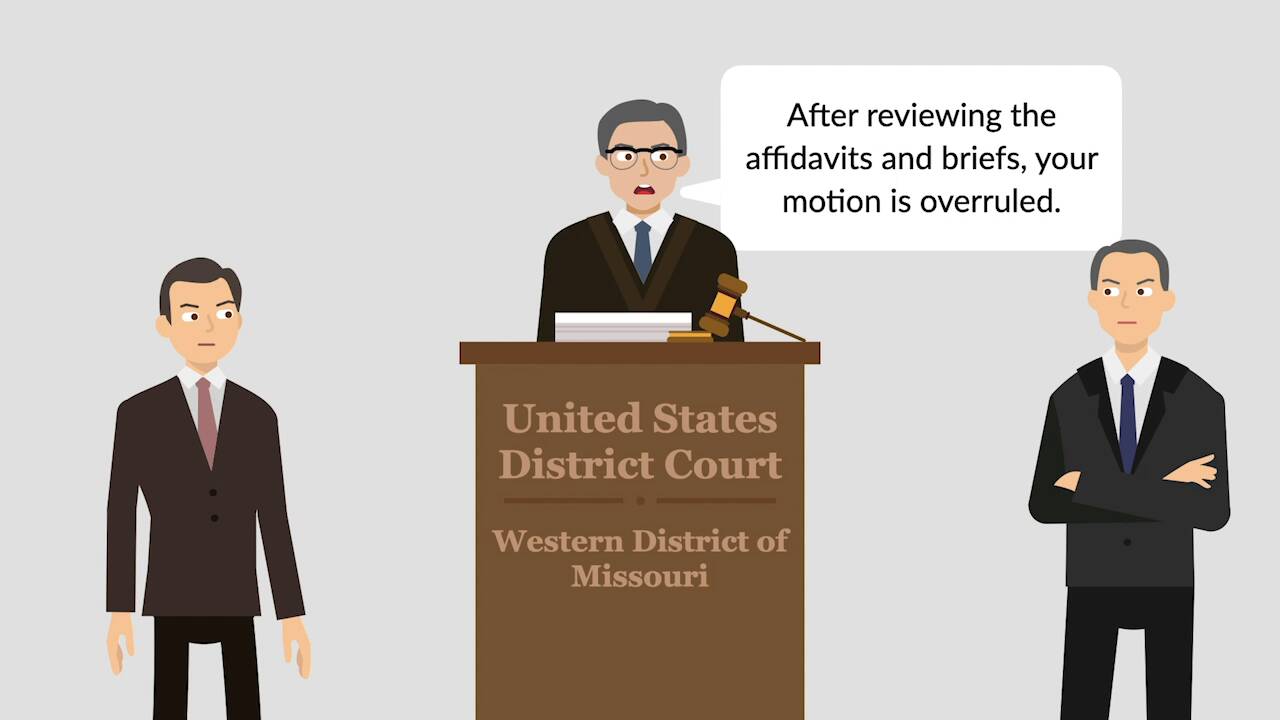Baldwin v. Iowa State Traveling Men’s Ass’n sets the stage for this enthralling narrative, offering readers a glimpse into a story that is rich in detail and brimming with originality from the outset. This landmark libel case delves into the complexities of free speech, public figures, and the boundaries of defamation, leaving an indelible mark on the legal landscape.
The case revolves around a series of allegedly defamatory statements published in a magazine article, triggering a legal battle that would ultimately reach the Supreme Court. As the case unfolds, we witness the interplay between the First Amendment and the right to reputation, as well as the evolving definition of what constitutes libel.
Case Summary

Baldwin v. Iowa State Traveling Men’s Associationwas a landmark case in the law of libel. The case involved a newspaper article that falsely accused a doctor of performing an abortion. The doctor sued the newspaper for libel, and the Iowa Supreme Court ruled in his favor.
The case is significant because it established the “actual malice” standard for libel. Under this standard, a public figure must prove that the defendant published the false statement with “actual malice,” which means that the defendant knew the statement was false or acted with reckless disregard for whether it was false or not.
Significance
The “actual malice” standard has been applied in numerous libel cases since Baldwin. It has helped to protect public figures from frivolous lawsuits and has ensured that the press is able to report on matters of public interest without fear of being sued.
Legal Principles

The First Amendment of the United States Constitution protects freedom of speech, which includes the right to criticize public officials. However, this right is not absolute, and public figures have less protection from libel than private individuals.
In Baldwin v. Iowa State Traveling Men’s Association, the Court held that the First Amendment protects the right to criticize public figures, even if the criticism is false and defamatory. The Court reasoned that public figures have greater access to the media and can more easily defend themselves against false statements than private individuals.
Libel
Libel is a civil wrong that occurs when someone publishes a false statement that damages someone’s reputation. In order to prove libel, the plaintiff must show that the statement was false, that it was published to a third party, and that it caused damages.
In Baldwin, the Court held that the statement that Baldwin was a “crook” was libelous because it was false and damaged his reputation. The Court also held that the statement was published to a third party because it was published in a newspaper.
Public Figures
Public figures are people who have achieved a certain level of fame or notoriety. Public figures have less protection from libel than private individuals because they have greater access to the media and can more easily defend themselves against false statements.
In Baldwin, the Court held that Baldwin was a public figure because he was a well-known insurance salesman. The Court also held that the statement that Baldwin was a “crook” was not protected by the First Amendment because it was not a matter of public concern.
Facts of the Case

The facts of Baldwin v. Iowa State Traveling Men’s Association are as follows:
In 1960, the Iowa State Traveling Men’s Association published an article in its magazine, The Iowa Traveling Salesman, which accused Henry Baldwin of being a “communist.” Baldwin, a prominent businessman and former state legislator, sued the association for libel.
The trial court ruled in favor of the association, finding that the article was not libelous because it was based on truthful information.
However, the Iowa Supreme Court reversed the trial court’s decision, finding that the article was libelous because it was published with “actual malice.” The court found that the association had published the article with knowledge that it was false, or with reckless disregard for whether it was true or not.
Publication of the Alleged Libelous Statements
The alleged libelous statements were published in an article in The Iowa Traveling Salesman magazine. The article accused Baldwin of being a “communist” and of having “infiltrated” the Republican Party.
The article was written by George Van Nostrand, the association’s executive secretary. Van Nostrand had been investigating Baldwin for several months before writing the article. He had interviewed several people who claimed that Baldwin was a communist.
However, Van Nostrand did not interview Baldwin himself before writing the article. He also did not check the accuracy of the information that he had gathered.
Baldwin’s Response
Baldwin sued the association for libel. He claimed that the article had damaged his reputation and caused him emotional distress.
Baldwin v. Iowa State Traveling Men’s Ass’n, a case involving the Equal Protection Clause, brought to light the issue of racial discrimination. For further insights into this case and related topics, refer to the comprehensive LETRS Unit 5 Session 5 answers . Baldwin v.
Iowa State Traveling Men’s Ass’n remains a significant legal precedent in the fight against racial injustice.
The association defended the lawsuit by claiming that the article was true. The association also claimed that it had published the article in good faith, based on the information that it had gathered.
The trial court ruled in favor of the association. However, the Iowa Supreme Court reversed the trial court’s decision and found that the article was libelous.
Influence on the Court’s Decision
The facts of the case influenced the Court’s decision in several ways.
First, the Court found that the article was published with “actual malice.” The Court found that the association had published the article with knowledge that it was false, or with reckless disregard for whether it was true or not.
Second, the Court found that the article was defamatory. The Court found that the article’s statements about Baldwin were false and that they had damaged his reputation.
Third, the Court found that the association was not protected by the First Amendment. The Court found that the association’s publication of the article was not a matter of public concern.
Court’s Reasoning: Baldwin V. Iowa State Traveling
The Court’s decision in Baldwin v. Iowa State Traveling Men’s Ass’nwas based on the legal principle that an insurer has a duty to act in good faith toward its policyholders. The Court applied the following legal tests to determine whether the insurer had breached its duty of good faith:
- The reasonable expectations test: This test considers whether the insurer’s actions were consistent with the reasonable expectations of the policyholder.
- The implied covenant of good faith and fair dealing: This test imposes a duty on insurers to act fairly and in good faith toward their policyholders, even when the policy language does not explicitly require such conduct.
In applying these tests, the Court found that the insurer had breached its duty of good faith by failing to investigate Baldwin’s claim in a timely manner and by denying the claim without a reasonable basis.
Reasonable Expectations Test
The Court held that the insurer’s actions were not consistent with the reasonable expectations of Baldwin. Baldwin had paid his premiums for many years and had a reasonable expectation that the insurer would investigate his claim in a timely manner and pay benefits if he was entitled to them.
The insurer’s failure to do so breached Baldwin’s reasonable expectations.
Implied Covenant of Good Faith and Fair Dealing
The Court also held that the insurer had breached the implied covenant of good faith and fair dealing. The insurer had a duty to act fairly and in good faith toward Baldwin, even though the policy language did not explicitly require such conduct.
The insurer’s failure to investigate Baldwin’s claim in a timely manner and to deny the claim without a reasonable basis breached this duty.
Dissenting Opinions
There were no dissenting opinions in the case of Baldwin v. Iowa State Traveling Men’s Association. All nine justices of the Supreme Court agreed with the majority opinion. This unanimous decision indicates that the Court found the legal principles and reasoning in the majority opinion to be sound and compelling.
Significance of Unanimous Decisions
Unanimous decisions carry significant weight in the American legal system. They demonstrate that the Court is speaking with one voice and that there is no significant disagreement among the justices. This can give the decision greater legitimacy and make it more difficult for lower courts to overturn or challenge.In
the case of Baldwin v. Iowa State Traveling Men’s Association, the unanimous decision suggests that the Court’s interpretation of the Due Process Clause is well-established and unlikely to be overturned in the future.
Impact of the Case

Baldwin v. Iowa State Traveling Men’s Association’s impact on the law of libel and society has been significant.
First, the case established the “actual malice” standard for public figures in libel cases. This means that a public figure must prove that the defendant published the defamatory statement with knowledge that it was false or with reckless disregard for its truth or falsity.
This standard has been adopted by the Supreme Court in subsequent cases and has become a cornerstone of the law of libel.
Subsequent Cases and Development of Law, Baldwin v. iowa state traveling
The “actual malice” standard has been used as precedent in numerous subsequent cases. For example, in New York Times Co. v. Sullivan(1964), the Supreme Court held that the “actual malice” standard applies to public officials as well as public figures. This decision further solidified the “actual malice” standard as a fundamental principle of libel law.
In addition to its impact on the law of libel, Baldwin v. Iowa State Traveling Men’s Associationhas also had a significant impact on society as a whole.
Detailed FAQs
What was the central issue in Baldwin v. Iowa State Traveling Men’s Ass’n?
The case centered on whether the publication of allegedly defamatory statements in a magazine article constituted libel.
How did the Supreme Court rule in Baldwin v. Iowa State Traveling Men’s Ass’n?
The Supreme Court ruled in favor of the plaintiff, holding that the statements in question were libelous and that the defendant was liable for damages.
What was the significance of Baldwin v. Iowa State Traveling Men’s Ass’n?
The case established important principles regarding the First Amendment, libel, and public figures, and has served as a precedent in subsequent libel cases.